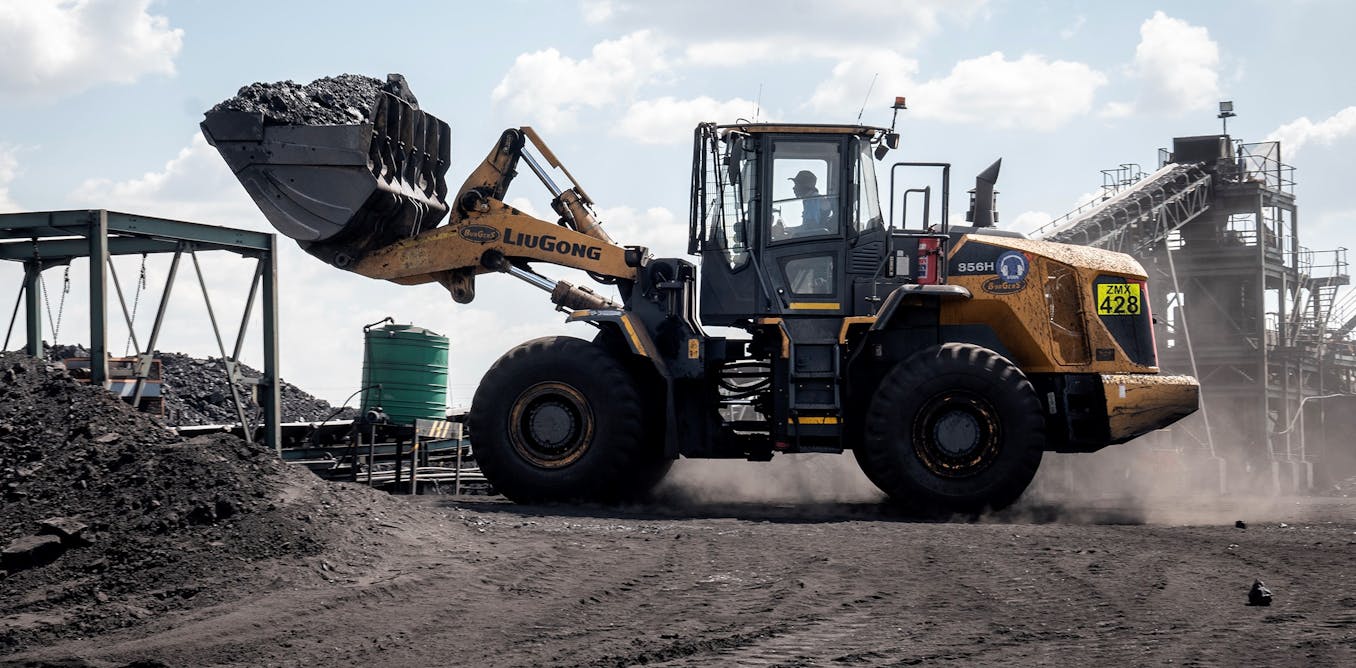South Africa is committed to a green energy transition, moving away from coal and other fossil fuels towards cleaner, renewable sources like solar and wind power. However, this shift raises significant concerns about the future of the country's 91,000 coal workers. While the renewable energy sector anticipates creating 250,000 jobs by 2047, a new study highlights the anxieties and uncertainties felt by coal workers in Mpumalanga, the heart of South Africa's coal industry.
The study, conducted by academics at the Centre for Sustainability Transitions at Stellenbosch University, aimed to understand how workers perceive "decent work" in the context of the energy transition. Researchers interviewed 51 individuals, both current and former coal mine and power plant workers, in KwaGuqa township, a low-income community situated in Emalahleni, a region known for its 20 collieries.
The workers expressed a profound lack of information about the transition's impact on their livelihoods. They were particularly concerned about the absence of reskilling opportunities for renewable energy jobs, highlighting observed instances in other regions where former mine workers were not retrained or re-employed in the green sector. This resulted in significant fear and uncertainty, with some workers believing they were too old to acquire new skills in unfamiliar industries.
Furthermore, workers emphasised the importance of "decent work" with benefits like pensions, medical insurance, and a safe and healthy working environment, highlighting the need for these conditions to be communicated and guaranteed before coal jobs are phased out.
The study also revealed a disconnect between the renewable energy sector and the workers' understanding of "decent work". While the International Labour Organisation defines decent work as encompassing workers' rights, protection from harmful working conditions, fair wages, and promotion opportunities, the renewable energy industry lacks a consistent definition, even for the basic concept of a "job".
The interviewed workers, while recognizing the dangers of coal mining and power plant work (80% stating they wouldn't want their children to follow in their footsteps), were deeply apprehensive about potential job losses. They understood the ripple effect such losses would have on other industries and individuals reliant on their income.
The research suggests that the creation of "decent work" in renewable energy must be tailored to the local context. In South Africa, opportunities exist in construction, infrastructure development for green hydrogen and battery storage, and operations and management roles requiring higher skill levels.
However, "job creation" and "decent work" are not interchangeable. While the former refers to the sheer number of jobs created, the latter encompasses job quality and working conditions. The renewable energy sector must prioritize skill development, training, and the creation of fair and secure working conditions to ensure a just transition.
The study identifies several key training gaps. The lack of a comprehensive renewable energy curriculum in schools and training colleges, particularly outside of higher learning institutions, hinders access to knowledge and skills. Additionally, the absence of a gender agenda in energy transition planning has resulted in the marginalization of women, excluding them from training and skilling opportunities.
To address these issues, the study recommends that the government regulate the renewable energy sector to ensure decent work standards. The skills and qualifications required for green jobs need to be clearly communicated to build worker confidence and facilitate a smoother transition.
The government must also provide financial support and incentives for organisations and companies in the renewable energy sector committed to creating decent work.
South Africa's transition to renewable energy is inherently complex, intertwined with historical inequities and the current economic realities of high unemployment and inequality. This necessitates a "just transition" that moves beyond technical changes to address the social and economic dimensions of the shift, ensuring workers receive a fair share of the benefits of the green economy.
In conclusion, the study highlights the crucial need for a proactive and inclusive approach to the energy transition in South Africa. By addressing the concerns and uncertainties of coal workers, ensuring fair and secure working conditions, and closing the training gaps, South Africa can create a truly just and sustainable green future for all.
Article
Business

South Africa's Green Shift: Will Coal Workers Be Left Behind?

